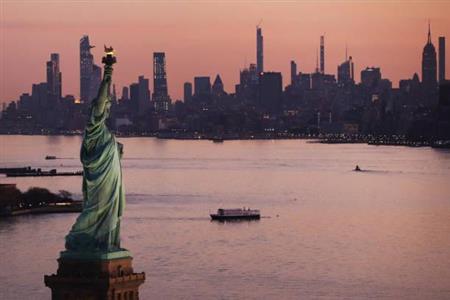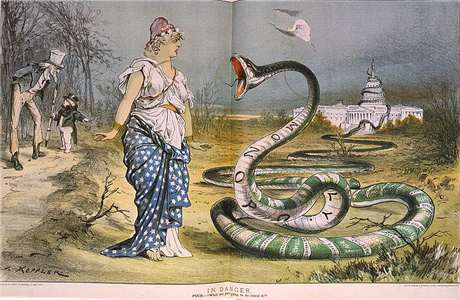This symposium will explore how the concentration of economic power directly shapes political society and democratic (or oligarchic) governance. As regulatory bodies, legal scholars, and policymakers grapple with how different kinds of structural reforms can address political oligarchy, this symposium will provide a critical forum for discussion. It will examine the relationship between the antimonopoly tradition and other arenas of democratic reform, consider how monopoly power in technology and health platforms affects speech, political power, and public accountability, and analyze how enforcement agencies, such as the DOJ and FTC, are confronting the challenges of oligarchic power in the modern era.

This interdisciplinary symposium will bring together leading legal theorists, policymakers, and enforcers to assess evolving legal strategies for countering oligarchic structures.
Friday, October 10, 2025
8:30 AM - 4:30 PM Eastern Time
In-Person and on Zoom
Register Now!
Speakers:We are pleased to announce Lieutenant Governor Antonio Delgado as our keynote speaker. Please join us to hear from distinguished voices including Lina Khan, Guy-Uriel Charles, Hanna Bloch-Wehba, Ganesh Sitaraman, Luigi Zingales, Doha Mekki, and others.
By:
Fordham Law School
Credit:
CLE credit for this program is pending in accordance with the requirements of the New York State CLE Board for a maximum of 1.0 transitional and nontransitional professional practice credit.
In many other jurisdictions, you may be able to self-apply for credit.
Program Agenda
8:30 AM – 9:00 AM | Check-in and Breakfast
9:05 AM – 9:25 AM | Welcome Remarks
Zephyr Teachout, Professor of Law, Fordham School of Law; Symposium Organizer
Joseph Landau, Dean and Paul Fuller Professor Law, Fordham School of Law
9:30 AM – 10:45 AM | Panel 1: Law, Oligarchy, and Democratic Political Economy
(1.5 professional practice CLE)
Panelists:
Guy-Uriel Charles, Charles Ogletree, Jr. Professor of Law, Harvard Law School
Hélène Landemore, Professor of Political Science, Yale University
Ganesh Sitaraman, Professor of Law, Vanderbilt Law School
Luigi Zingales, Robert C. McCormack Distinguished Service Professor of Entrepreneurship and Finance, The University of Chicago Booth School of Business
Moderator: Zephyr Teachout, Professor of Law, Fordham School of Law
10:45 AM – 11:00 AM | Break
11:00 AM – 11:20 AM | Keynote Address by Antonio Delgado, Lieutenant Governor of New York State
11:20 AM – 11:30 AM | Break
11:30 AM – 12:15 PM | Fireside Chat with Lina Khan, Chair, Federal Trade Commission
Chair Khan will address the relationship between economic concentration and democratic vulnerability and explore how antitrust law can serve as a tool for democratic renewal in the 21st century.
Moderator: Olivier Sylvain, Professor of Law, Fordham School of Law
12:15 PM – 1:00 PM | Lunch
1:00 PM – 2:15 PM | Panel 2: The Role of Platforms in Democracy
(1.5 professional practice CLE)
Panelists:
Theodosia Stavroulaki, Assistant Professor of Law, Saint Louis University School of Law
Hayden Rooke-Ley, Senior Fellow, Brown University School of Public Health and the American Economic Liberties Project
Maurice E. Stucke, Douglas A. Blaze Distinguished Professor of Law, University of Tennessee College of Law
Hannah Bloch-Wehba, Professor of Law, Texas A&M University School of Law
Moderator: Doni Bloomfield, Associate Professor of Law, Fordham School of Law School
2:15 PM – 2:30 PM | Break
2:30 PM – 3:45 PM | Panel 3: Corruption and Power
(1.0 professional practice; 0.5 ethics CLE)
Panelists:
Doha Mekki, Senior Fellow, Berkeley Center for Consumer Law and Economic Justice; former Acting Assistant Attorney General, DOJ Antitrust Division
John M. Newman, Professor and Herbert Herff Chair of Excellence in Law, University of Memphis School of Law
Samuel Levine, Senior Fellow, Berkeley Center for Consumer Law and Economic Justice; former Director, FTC Bureau of Consumer Protection
Moderator: Jamie Grischkan, Associate Professor of Law, Fordham Law School
3:45 PM | Closing Remarks
CLE Information
CLE credits are approved in accordance with the requirements of the New York and New Jersey State CLE Boards for a maximum of 4.5 transitional and nontransitional (0.5 ethics and 4.0 professional practice) credits.








